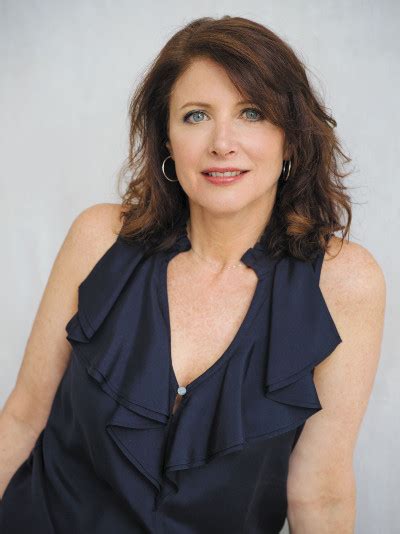A Quote by Deborah Eisenberg
It takes me a very, very long time to write a story, to write a piece of fiction, whatever you call the fiction that I write. I just go about it blindly, feeling my way towards what it has to be.
Related Quotes
I write fiction longhand. That's not so much about rejecting technology as being unable to write fiction on a computer for some reason. I don't think I would write it on a typewriter either. I write in a very blind gut instinctive way. It just doesn't feel right. There's a physical connection. And then in nonfiction that's not the case at all. I can't even imagine writing nonfiction by hand.
I write my first draft by hand, at least for fiction. For non-fiction, I write happily on a computer, but for fiction I write by hand, because I'm trying to achieve a kind of thoughtless state, or an unconscious instinctive state. I'm not reading what I write when I wrote. It's an unconscious outpouring that's a mess, and it's many, many steps away from anything anyone would want to read. Creating that way seems to generate the most interesting material for me to work with, though.
I arrived at my way of "working" as a way of visually approximating what I feel the tone of fiction to be in prose versus the tone one might use to write biography; I would never do a biographical story using the deliberately synthetic way of cartooning I use to write fiction. I try to use the rules of typography to govern the way that I "draw," which keeps me at a sensible distance from the story as well as being a visual analog to the way we remember and conceptualize the world.
The idea that we should write towards the unknown aspects of our experience was totally groundbreaking for me. It gave me the license I needed to try to write outside myself. This attitude has deeply informed my approach to fiction, emboldening me to write characters with voices or situations that are vastly different from my own.
The desire to be liked is acceptable in real life but very problematic in fiction. Pleasantness is the enemy of good fiction. I try to write on the premise that no one is going to read my work. Because there's this terrible impulse to grovel before the reader, to make them like you, to write with the reader in mind in that way. It prevents you doing work that is ugly or upsetting or difficult. The temptation is to not be true to what you want to write and to be considerate or amusing instead. I'm always trying to fight against the impulse to make my readers like me.
I write in spurts. I write when I have to because the pressure builds up and I feel enough confidence that something has matured in my head and I can write it down. But once something is really under way, I don't want to do anything else. I don't go out, much of the time I forget to eat, I sleep very little. It's a very undisciplined way of working and makes me not very prolific. But I'm too interested in many other things.
I more seriously considered publishing it under a pseudonym than I considered publishing it as fiction. I think the decision to write it as nonfiction happened at the very outset of the process, because the overwhelming impetus for writing this book was to understand what the experience meant, and to override my own reductions and rationalizations, whatever story I had that was not true. It didn't sit well with me and I needed to answer that. That's sort of the reason I write everything.





































